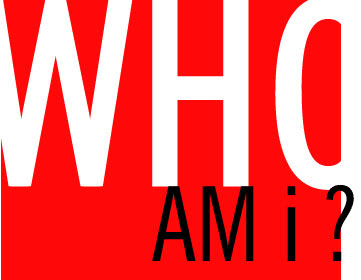Those Golden Days !!!!!!!
Lying to boss was easy


http://www.ndtv.com/news/india/tweets-not-sweet-can-spell-trouble-in-divorce-cases-19229.php
Tweets not sweet: Can spell trouble in divorce cases
Anu Sharma, 30, suspected that her husband was lying to her every time he cited urgent business tours to stay out of the house. One day she finally got proof in the form of a tweet. The next day, she filed for divorce, using the tweet as evidence.
When it comes to fighting a divorce case, tweets are not necessarily sweet. Your status message on social networking websites can even be used as secondary evidence in court cases.
Legal experts say tweets and messages on social networking sites like Facebook and Orkut can reveal one's state of mind; therefore they can be taken as secondary evidence in legal matters. This clause comes under the IT Act of 2000, amended in October last year.
Pavan Duggal, a Supreme Court lawyer, said: "The IT Act of 2000 was primarily legislation promoting e-commerce and the concept of social networking was not even heard of then. Thus, this clause was incorporated because of the widespread use of microblogging and social networking sites."
"This trend is catching up now, specially in divorce cases, although it started only last year," Duggal told IANS.
Citing Anu Sharma's example, Duggal said: "Her husband used to give her excuses that he was going out on business tours. But instead he would meet friends and socialise. Finally, he was caught when on one of his 'so called' business tours, he tweeted: 'Having a great time with friends over beer, I am in town, come over and join me.'
"Tweets and status messages are usually taken up as secondary evidence. And they are as important as the primary ones," Duggal told IANS.
He said even an angry tweet or status message like, "I hate my wife", if produced in court as a printout or screen shot becomes secondary evidence.
"Any written word available in the public domain can be used under this Act. A statement like this can be used on grounds of mental cruelty," added Duggal.
Agreed Karnika Seth, attorney at law firm Seth Associates who specialises in cyber crime.
"There are couples who are filing for divorce on reasons which could not have been proved before, but with tweets and status message updating several times a day, it works as additional evidence, often making adultery easy to prove," Seth told IANS.
She also added that many people used to hire private detectives, but this had become a new way of finding the truth.
"In one such case, a man had e-mailed threatening messages to his wife. His IP address could be traced, but the message was not digitally signed, thus the messages were taken as a secondary evidence and a divorce case was filed."
Seth said a numeric address or domain name given to a website to track it is called IP address. Digital signatures are specially designed icons or even one's original sign encrypted on the e-mails are the two criteria on the basis of which primary or secondary evidence is distinguished.
According to her, blogs and chat messages can also be used as evidence.
As the clause is only a few months old, no specific statistics is available yet on how many people have used tweets or status messages in legal matters.
Maninder Walia, researcher with the website Cybersmart, feels the act curbs people's freedom of speech and thoughts.
"The idea behind this act is to control the ever expanding cyber crime which is a threat to national security. But when it comes to freedom of speech and thoughts, this act may be a hindrance," he said.
Walia feels if a person writes on his or her status message about drinking a lot or something similar, this could also be presented as evidence tagging him or her as an alcoholic in court.
He feels social networking sites are easy interaction platforms, hence things written as tweets, status messages in good humour or otherwise should not be put under the scanner.
"The law needs to pinpoint what kind of information should be used as evidence and in what cases. The act should be reviewed; the internet is moving fast, the law should not lag behind technology," he said.
.
Anu Sharma, 30, suspected that her husband was lying to her every time he cited urgent business tours to stay out of the house. One day she finally got proof in the form of a tweet. The next day, she filed for divorce, using the tweet as evidence.
When it comes to fighting a divorce case, tweets are not necessarily sweet. Your status message on social networking websites can even be used as secondary evidence in court cases.
Legal experts say tweets and messages on social networking sites like Facebook and Orkut can reveal one's state of mind; therefore they can be taken as secondary evidence in legal matters. This clause comes under the IT Act of 2000, amended in October last year.
Pavan Duggal, a Supreme Court lawyer, said: "The IT Act of 2000 was primarily legislation promoting e-commerce and the concept of social networking was not even heard of then. Thus, this clause was incorporated because of the widespread use of microblogging and social networking sites."
"This trend is catching up now, specially in divorce cases, although it started only last year," Duggal told IANS.
Citing Anu Sharma's example, Duggal said: "Her husband used to give her excuses that he was going out on business tours. But instead he would meet friends and socialise. Finally, he was caught when on one of his 'so called' business tours, he tweeted: 'Having a great time with friends over beer, I am in town, come over and join me.'
"Tweets and status messages are usually taken up as secondary evidence. And they are as important as the primary ones," Duggal told IANS.
He said even an angry tweet or status message like, "I hate my wife", if produced in court as a printout or screen shot becomes secondary evidence.
"Any written word available in the public domain can be used under this Act. A statement like this can be used on grounds of mental cruelty," added Duggal.
Agreed Karnika Seth, attorney at law firm Seth Associates who specialises in cyber crime.
"There are couples who are filing for divorce on reasons which could not have been proved before, but with tweets and status message updating several times a day, it works as additional evidence, often making adultery easy to prove," Seth told IANS.
She also added that many people used to hire private detectives, but this had become a new way of finding the truth.
"In one such case, a man had e-mailed threatening messages to his wife. His IP address could be traced, but the message was not digitally signed, thus the messages were taken as a secondary evidence and a divorce case was filed."
Seth said a numeric address or domain name given to a website to track it is called IP address. Digital signatures are specially designed icons or even one's original sign encrypted on the e-mails are the two criteria on the basis of which primary or secondary evidence is distinguished.
According to her, blogs and chat messages can also be used as evidence.
As the clause is only a few months old, no specific statistics is available yet on how many people have used tweets or status messages in legal matters.
Maninder Walia, researcher with the website Cybersmart, feels the act curbs people's freedom of speech and thoughts.
"The idea behind this act is to control the ever expanding cyber crime which is a threat to national security. But when it comes to freedom of speech and thoughts, this act may be a hindrance," he said.
Walia feels if a person writes on his or her status message about drinking a lot or something similar, this could also be presented as evidence tagging him or her as an alcoholic in court.
He feels social networking sites are easy interaction platforms, hence things written as tweets, status messages in good humour or otherwise should not be put under the scanner.
"The law needs to pinpoint what kind of information should be used as evidence and in what cases. The act should be reviewed; the internet is moving fast, the law should not lag behind technology," he said.
.








Comments
Post a Comment